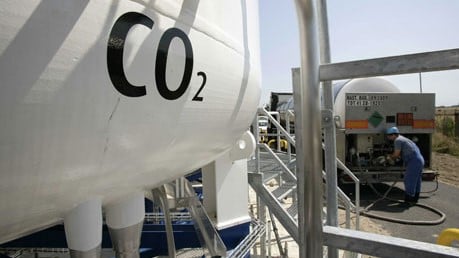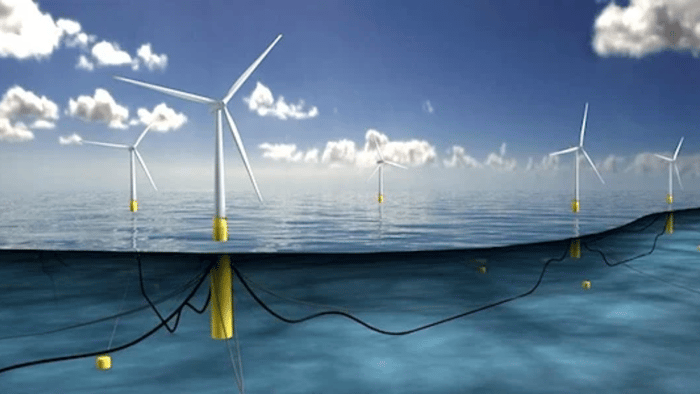
About the Course
This three-day programme is designed to provide professionals with a deep understanding of offshore wind farm projects. From planning and design to decommissioning, this course covers all phases, including both traditional fixed-bottom and cutting-edge floating wind farm technologies, as well as innovative offshore hydrogen production. Participants will gain insights into risk assessment and management, ensuring they are well-prepared to tackle the challenges in the industry.
Day one focuses on the fundamentals of offshore wind energy, including the principles, advantages, and challenges of both fixed-bottom and floating wind turbines. Participants will learn about regulatory frameworks and government policies, gaining a comprehensive understanding of the differences between offshore and onshore wind energy.
On the second day, the course delves into the technologies driving offshore wind. Participants will explore the details of fixed-bottom and floating wind turbines, offshore hydrogen production, grid integration, and energy storage solutions. The day includes a discussion on global market trends and innovations in offshore wind technology.
The final day addresses the project lifecycle, from planning and design to construction, operation, maintenance, and decommissioning. Participants will learn about site selection, environmental and technical considerations, turbine layout, subsea cables, and permitting processes. The course will also cover construction techniques, the role of marine vessels, subsea cable installation, and minimising environmental impacts.
Throughout the programme, interactive sessions, case studies, and group projects provide practical insights and hands-on experience. By the end of the course, attendees will be equipped with the knowledge and skills to manage offshore wind projects effectively, apply industry best practices, and contribute to the global transition to sustainable energy.
Who's it for
-
Project Managers: Learn practical approaches to manage offshore wind projects from planning to decommissioning, ensuring efficiency and success.
-
Energy Professionals: Enhance strategic planning and implementation skills with a deep understanding of offshore wind technologies and operations.
-
Investors: Discover and capitalise on lucrative opportunities in the offshore wind sector, informed by the latest market trends and innovations.
-
Sustainability Officers: Drive impactful sustainability initiatives by gaining detailed knowledge of offshore wind energy.
-
Policy Makers: Develop effective policies with insights into the regulatory and economic impacts of offshore wind energy.
-
Engineers: Gain technical expertise in the design, construction, and maintenance of offshore wind farms.
Learning Objectives
-
Understand the fundamental principles and technologies of offshore wind energy.
-
Gain in-depth knowledge of the project lifecycle from planning to decommissioning.
-
Learn risk assessment and management techniques specific to offshore wind projects.
-
Develop skills in operational and maintenance strategies for offshore wind farms.
-
Stay informed about the latest industry trends and technological advancements.
Course Content
-
Day One
Introduction to Offshore Wind Energy
-
Basics of offshore wind energy: principles and advantages.
-
Challenges in offshore wind industry: environmental, technical, logistical.
-
Regulatory frameworks and government policies impact.
-
Comparison of offshore and onshore wind energy.
Technologies in Offshore Wind
-
Detailed exploration of fixed-bottom and floating wind turbines.
-
Offshore hydrogen production: concepts and connections to wind energy.
-
Grid integration and energy storage solutions.
-
Global market trends and innovations in offshore wind technology.
-
-
Day Two
Planning and Design of Wind Farms
-
Environmental factors and technical considerations in site selection.
-
Geophysical and geotechnical surveys for site assessment.
-
Turbine layout, subsea cables configuration, and planning tools.
-
Introduction to Cable Burial Risk Assessments (CBRA).
-
Permitting and licensing processes in offshore projects.
-
Environmental regulations compliance and impact assessments.
Construction and Installation Techniques
-
Overview of construction processes for various wind turbine types.
-
Role of marine vessels and equipment in construction.
-
Detailed process of subsea cable installation and challenges.
-
Use of ROVs in seabed surveying and cable laying.
-
Minimising environmental impacts during construction.
-
-
Day Three
Operation, Maintenance and Safety
-
Daily operations and roles in an offshore wind farm.
-
Different maintenance strategies and condition monitoring.
-
Importance of safety training and international safety standards.
-
Managing environmental impacts during operation and maintenance.
-
Use of data and digital technologies for performance optimisation.
Decommissioning and Future Trends
-
Planning and techniques for the decommissioning phase.
-
Environmental considerations and site restoration strategies.
-
Recycling and repurposing of wind turbine components.
-
Lifecycle assessment of offshore wind farms.
-
Future trends in offshore wind energy and innovative turbine technologies.
-
The emerging role of AI, digitalisation, and green hydrogen in offshore wind.
-
Learning Outcomes
Upon completion of this course, participants will:
-
Acquire comprehensive knowledge of offshore wind energy principles and technologies.
-
Develop expertise in managing the complete lifecycle of offshore wind projects.
-
Gain proficiency in risk assessment and management for offshore wind projects.
-
Attain skills in operational aspects and maintenance strategies for offshore wind farms.
-
Stay updated on industry innovations and trends, including offshore hydrogen production.
-
Class Materials
- Case studies that explore real-world offshore wind challenges and their solutions.
- A comprehensive course package detailing all essential topics and technical data.
- Detailed notes from the tutor offering additional insights and expertise.
- A collection of references and practical worked examples to deepen understanding and application of the material.
-
Start Dates
Our courses are delivered live online by expert tutors from 9am to 5pm each day, with class sizes capped at 12 participants to ensure personalised attention.
2025 Public Course Dates:
-
13th - 15th January (09:00-17:00 UK)
-
15th - 17th - July (09:00-17:00 UK)
For other dates, please speak to the team.
-
-
Jeenius
Participants in the course gain access to Jeenius, a cutting-edge learning platform that offers comprehensive support tools. This platform includes all course notes, recordings of the sessions for later review, and the opportunity for one-on-one support with the tutor. Additionally, Jeenius provides access to the latest insights in renewable energy enhancing the learning experience with up-to-date industry knowledge.
-
In-Company Delivery
For in-company delivery options and content customisation to meet your specific needs, please don't hesitate to reach out to us.
-
Fee
£1,995 per person.
A discount is available if registering 3+ people.
Your Tutor

Amrit Chandan
PhD
LEAD TUTOR
Dr Amrit Chandan, a renowned entrepreneur and expert in chemical engineering, specialises in sustainable energy solutions. Named on the Forbes 30 Under 30 list and awarded the Hawley Award for Engineering Innovation, Amrit has extensive expertise in renewable energy technologies, including sustainable energy storage and offshore wind energy. Amrit has been featured in prominent publications such as The Telegraph, The Guardian, and BBC. In addition to his industry contributions, Amrit also teaches courses on offshore wind energy, sharing his knowledge and experience to educate the next generation of energy professionals.
Testimonials
"An excellent programme that enhanced my knowledge of renewable technologies and their impact on grid systems"
"The blend of theory and practical insights on new technologies was exactly what I needed. Excellent course!"
Similar Courses


